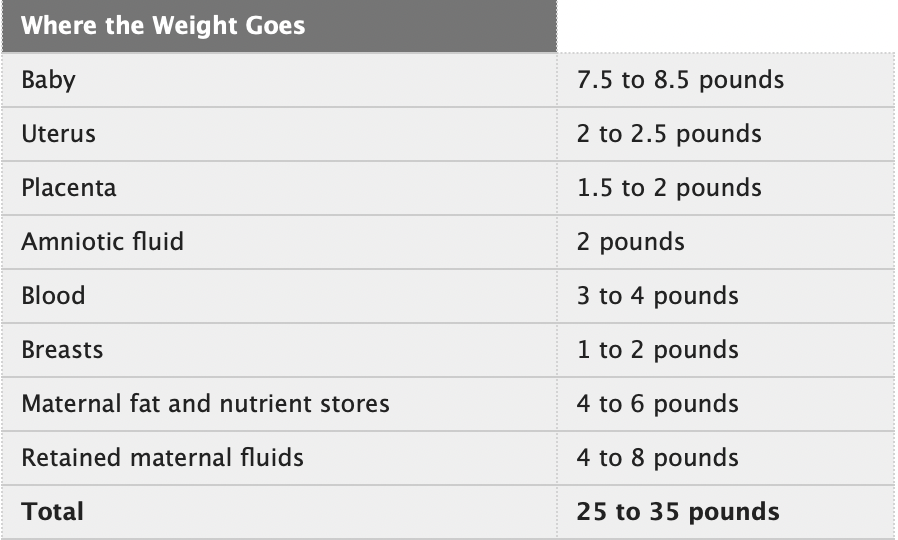What to Expect When You're Three Months Pregnant

Welcome to the last month of your first trimester! The third month of pregnancy is a true landmark as you finish up your first trimester! By the end of this month, your baby will be fully formed, weigh almost an ounce, and be 2.5 to 4 inches in length. Their head accounts for one-third of their total length, and their tongue, salivary glands and taste buds have formed. The third month of pregnancy is an exciting time for expecting parents. It’s around this month that you’ll hear the baby’s heartbeat for the first me!
Related: Second Trimester Basics
And you may even get a sneak peek of your little one on the ultrasound for the first time. Here’s a breakdown of what to expect in month three of pregnancy.
Month Three Checklist
- Continue to take prenatal vitamins.
- Continue with an exercise regimen (as cleared by your doctor).
- Create ways to compensate for forgetfulness.
- Make sleep a priority; set a new early bedtime and stick to it.
Your Baby This Month
During the third month of pregnancy, the embryo officially becomes a fetus. This month is a period of rapid growth! All limbs including hands, feet, fingernails, toes and toenails are developed. The sex organs of the fetus are fully differentiated.
Moreover, the circulatory, digestive and urinary systems are working. At this stage, the fetus is drinking and peeing amniotic fluid while making a fist. It’s a busy month for the baby! After the third month of pregnancy, the risk of miscarriage drops significantly.
Your Body's Changes
This month, you may begin to sport a protruding belly which means sharing your news with friends, family and coworkers if you haven't already. Your uterus is about the size of a grapefruit and stretches to just about your pubic bone.
Two to four pounds of total weight gain is about average for the first trimester as your baby begins to grow. Morning sickness is also quite common in this trimester. So if you've been down and out with nausea and vomiting, you may be below the curve. Weight gain will pick up in the second trimester and peak in the third as your baby starts to fill out your womb.
More: Second Trimester Basics
Recommended Weight Gain
While 25 to 35 pounds is the average suggested total weight gain for a pregnancy, your height and build will influence that number. Underweight women and women with multiple pregnancies (twins or more) will be expected to gain more; overweight women will be encouraged to gain slightly less.
Focus on the quality of food you're eating and on getting some regular exercise (cleared with your provider first).

If your provider hasn't mentioned a weight goal for your pregnancy, ask for your weight goal and record it.
Pregnancy Symptoms This Month
Although nausea and vomiting may finally be waning this month, constipation, gas and occasional heartburn may take over as the gastrointestinal pests as you move into the second trimester.
Constipation can be caused by an increase in progesterone, which can act to slow down the digestive system. Later in the pregnancy, pressure on the intestines caused by your growing uterus adds to the problem. Iron supplements or prenatal vitamins with added iron can also cause constipation, so talking to your provider about the possibility of a dosage adjustment or an extended release formula may be in order.
An increase in dietary fiber, plenty of water intake and exercise as approved by your healthcare provider may also help to get things going again. Be sure to consult your doctor before taking any stool softeners or laxatives.
Other pregnancy symptoms that may continue or begin this month include the following. Take note of symptoms you experience this month and talk to your doctor or midwife about any that make you especially uncomfortable:
- Fatigue
- Frequent urination
- Tender or swollen breasts
- Occasional dizziness or faintness
- Headaches
- Nasal congestion and/or runny nose
- Increased saliva
- Nausea, with or without vomiting
- Food aversions
On Your Mind
Like any mom-to-be, you've got a lot on your mind. It makes sense; between all the hormonal, physical and emotional changes you have a lot going on. Believe it or not, brain fog is also common during pregnancy and can start to rear its head during the first trimester. Pregnancy hormones, sleep deprivation and stress have all been suggested as possible culprits.
Whatever the cause, forgetfulness (including missing appointments and misplacing things) can leave you feeling muddled and frustrated. Some tips to help with forgetfulness or brain fog include:
- Write it out! Stash a notepad and pen in your purse or leave sticky notes in obvious places (e.g., the counter top, bathroom mirror or wherever else you will see the reminder).
- Stick to a routine (e.g., car keys always go into a basket by the door)
- Utilize a calendar app and set reminders for prenatal appointments in the app.
- Request a 24-hour advance phone call reminder when you schedule appointments.
- Give yourself grace. Take a deep breath. Brain fog is frustrating and temporary.
At the Doctor's or Midwife's Office
During your visit to your provider’s office this month, they may:
- Order an ultrasound.
- Estimate the size of your baby by counting the centimeters from your pubic bone to the tip of your fundus — the top of the uterus. Some practitioners do not take the fundal height until after week twelve or even week twenty.
- Discuss the alpha-fetoprotein (AFP) test. AFP is typically given between fifteen to twenty weeks. It tests for the possibility of neural tube defects and/or chromosomal abnormalities.
- Check for the fetal heartbeat using a small ultrasound device called a Doppler or Doptone.